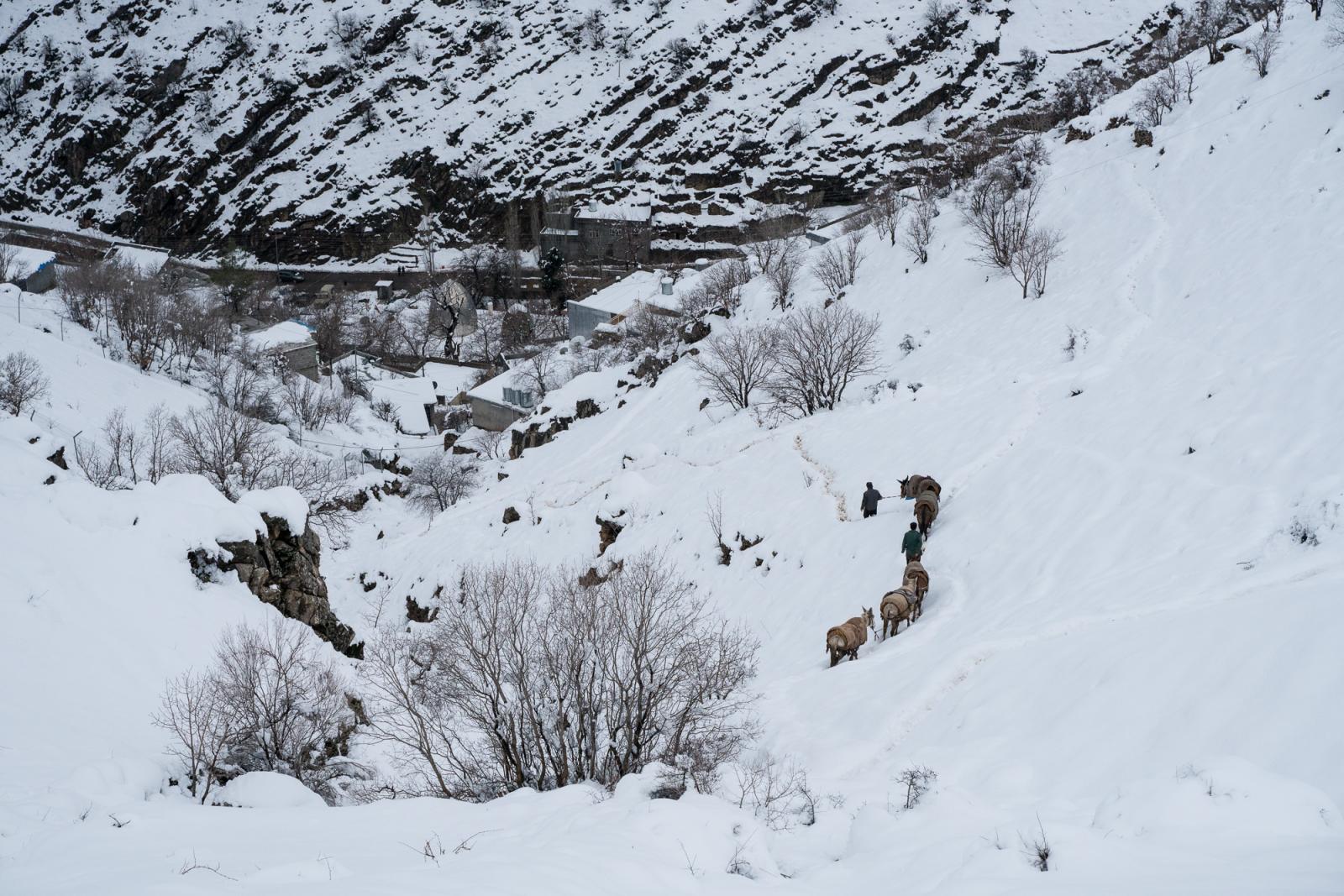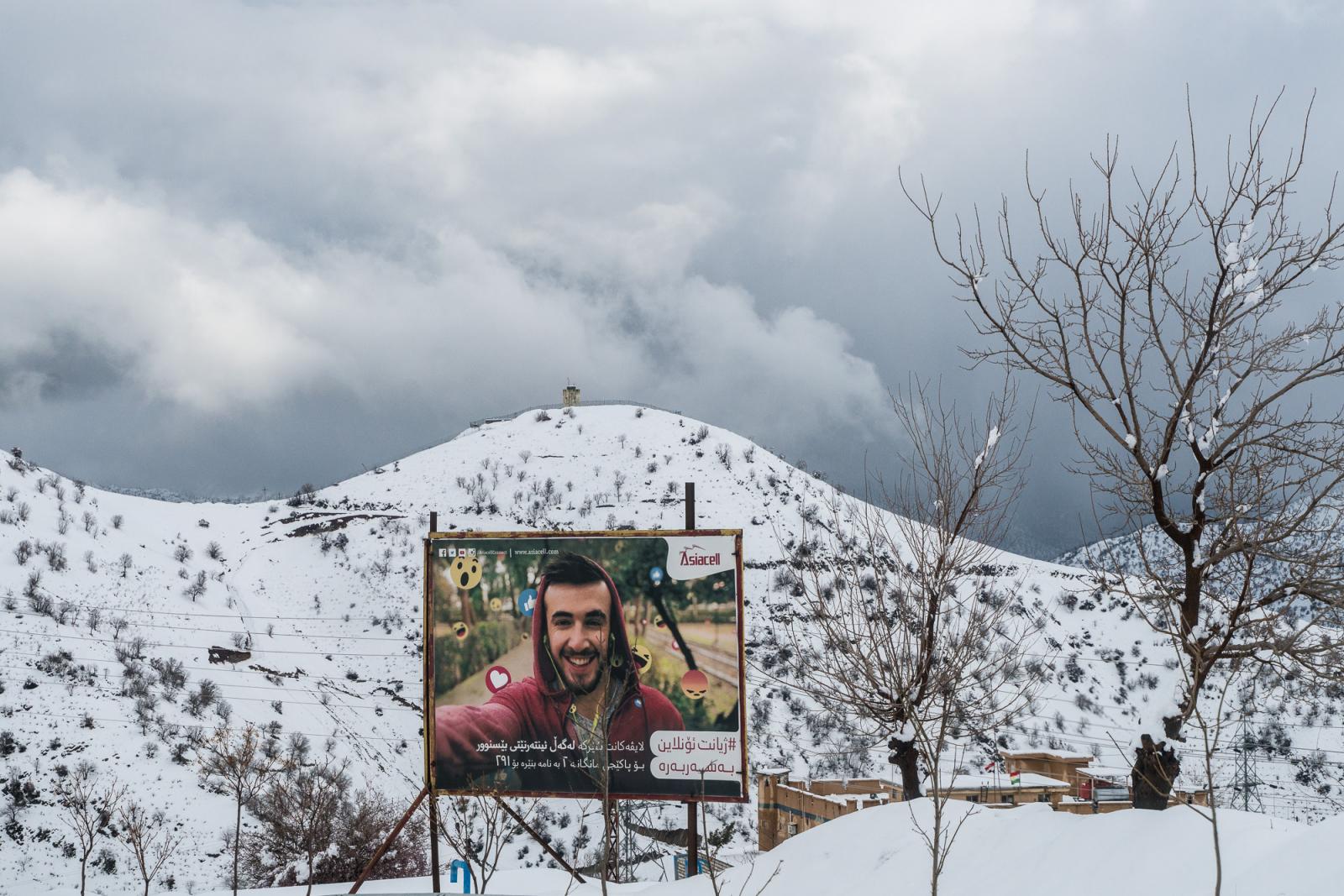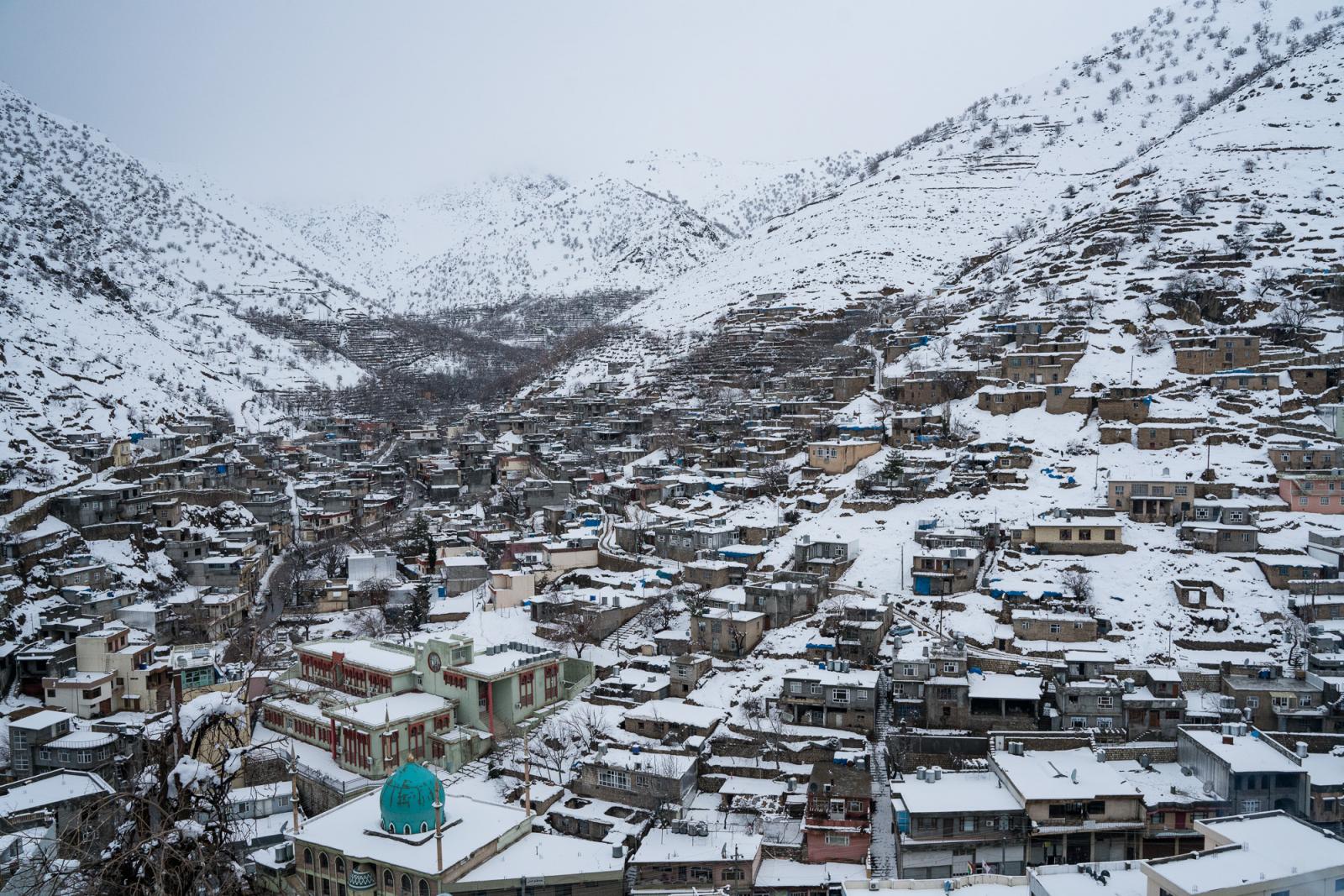Public Project
Kolbari kolnader - kolbars don't bend
The situation of the Kurds in Iran is less known than that of other parts of Kurdistan. Yet there too the state’s repression strikes down ferociously any voice that rises against the regime of the mullahs. The colonial management of the Kurdish margins by the central state is reflected in particular in the fate of kolbars.
These women and men are risking their lives carrying on their back goods from Iraq to Iran. In addition to the dangers of steep and mine-infested mountains, they’re facing each day the repression of border guards who do not hesitate to open fire on them. The deaths are in the hundreds, while thousands of people are forced every day to resume the paths of the mountain, because of the lack of other economic alternative in areas maintained voluntarily in precariousness by the regime.
The life of kolbars reveals both the impact of the nation-states on the Kurdish people, Iran and Irak in this case, and the excesses of neoliberalism. And the detrimental effect of the sanctions of the USA on Iran, only makes things more precarious for populations already maintained under pressure by the regime.
To learn more : https://www.nawext.com/post/view/between-iran-and-iraq-kolbars-do-not-bend
714







































